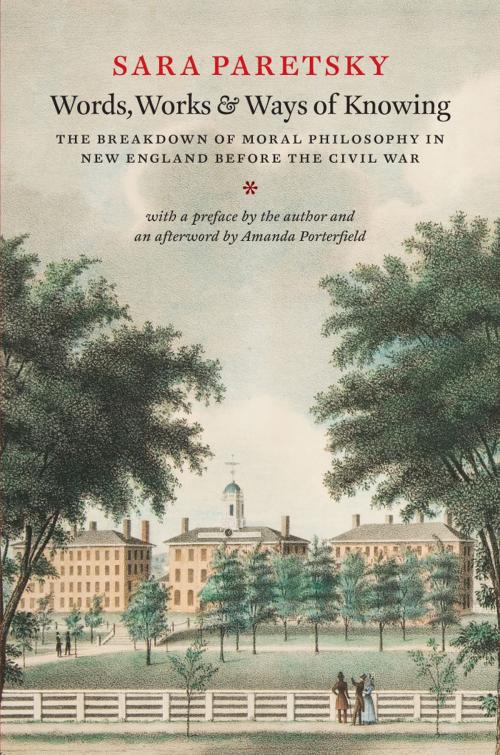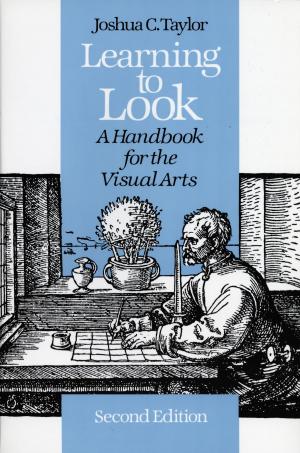Words, Works, and Ways of Knowing
The Breakdown of Moral Philosophy in New England before the Civil War
Nonfiction, History, Americas, United States, 19th Century| Author: | Sara Paretsky, Sara Paretsky, Amanda Porterfield | ISBN: | 9780226337883 |
| Publisher: | University of Chicago Press | Publication: | June 14, 2016 |
| Imprint: | University of Chicago Press | Language: | English |
| Author: | Sara Paretsky, Sara Paretsky, Amanda Porterfield |
| ISBN: | 9780226337883 |
| Publisher: | University of Chicago Press |
| Publication: | June 14, 2016 |
| Imprint: | University of Chicago Press |
| Language: | English |
Crime writer Sara Paretsky is known the world over for her acclaimed series of mysteries starring Chicago private investigator V. I. Warshawski, now in its seventeenth installment. Paretsky’s work has long been inflected with history—for her characters the past looms large in the present—and in her decades-long career, she has been recognized for transforming the role of women in contemporary crime fiction.
What’s less well-known is that before Paretsky began her writing career, she earned a PhD in history from the University of Chicago with a dissertation on moral philosophy and religion in New England in the early and mid-nineteenth century. Now, for the first time, fans of Paretsky can read that earliest work, Words, Works, and Ways of Knowing.
Paretsky here analyzes attempts by theologians at Andover Seminary, near Boston, to square and secure Calvinist religious beliefs with emerging knowledge from history and the sciences. She carefully shows how the open-minded scholasticism of these theologians paradoxically led to the weakening of their intellectual credibility as conventional religious belief structures became discredited, and how this failure then incited reactionary forces within Calvinism. That conflict between science and religion in the American past is of interest on its face, but it also sheds light on contemporary intellectual battles.
Rounding out the book, leading religious scholar Amanda Porterfield provides an afterword discussing where Paretsky’s work fits into the contemporary study of religion. And in a sobering—sometimes shocking—preface, Paretsky paints a picture of what it was like to be a female graduate student at the University of Chicago in the 1970s. A treat for Paretsky’s many fans, this book offers a glimpse of the development of the mind behind the mysteries.
Crime writer Sara Paretsky is known the world over for her acclaimed series of mysteries starring Chicago private investigator V. I. Warshawski, now in its seventeenth installment. Paretsky’s work has long been inflected with history—for her characters the past looms large in the present—and in her decades-long career, she has been recognized for transforming the role of women in contemporary crime fiction.
What’s less well-known is that before Paretsky began her writing career, she earned a PhD in history from the University of Chicago with a dissertation on moral philosophy and religion in New England in the early and mid-nineteenth century. Now, for the first time, fans of Paretsky can read that earliest work, Words, Works, and Ways of Knowing.
Paretsky here analyzes attempts by theologians at Andover Seminary, near Boston, to square and secure Calvinist religious beliefs with emerging knowledge from history and the sciences. She carefully shows how the open-minded scholasticism of these theologians paradoxically led to the weakening of their intellectual credibility as conventional religious belief structures became discredited, and how this failure then incited reactionary forces within Calvinism. That conflict between science and religion in the American past is of interest on its face, but it also sheds light on contemporary intellectual battles.
Rounding out the book, leading religious scholar Amanda Porterfield provides an afterword discussing where Paretsky’s work fits into the contemporary study of religion. And in a sobering—sometimes shocking—preface, Paretsky paints a picture of what it was like to be a female graduate student at the University of Chicago in the 1970s. A treat for Paretsky’s many fans, this book offers a glimpse of the development of the mind behind the mysteries.















